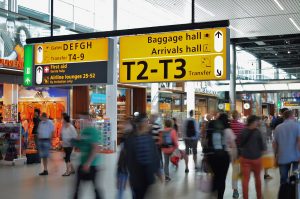We all know the importance of schooling our children. To apply for the school that best suits them is just as important as finding our ideal home; this topic will be our main concern while settling down.
The school becomes the center of our lives, especially when we settle in a new city. It’s the place where our children will spend the most time and probably where most of our social life will come from, not just our children.
In order to properly school our children, work begins before we move. Depending on the year they’ll apply for, we may or may not need to provide documentation from previous schools and to validate or approve their studies.
Students from foreign educational systems who apply for:
- Primary Education (Educación Primaria, EP) or Compulsory Secondary Education (Educación Secundaria Obligatoria, ESO) do NOT need to carry out any procedure for the validation of studies.
- Baccalaureate (Bachillerato) need to validate the Title of Graduate in Compulsory Secondary Education.
- The University needs to validate the Bachelor’s Degree.
Of course, foreign degrees must meet certain requirements for their homologation or validation.
For “ESO” and “Bachillerato” Degrees, the competent bodies to process the file and formulate the corresponding proposal for resolution will be the following:
- The Areas of High Inspection of Education in the Autonomous Community of Madrid provided that the address indicated by the interested party is within its territorial scope, regardless of the place of presentation.
- The Education Departments of the Spanish Embassies abroad, with respect to all applications submitted in their area, regardless of the nationality of the applicant or the educational system to which they refer.
An application or validation form must be submitted, completed with the required data and attach a series of official documents that must be duly legalized and accompanied by an official translation into Spanish, provided that it corresponds.
Legalization is the procedure for validating the signatures of the authorities that sign a document by means of which the authenticity of the same is accredited, for the purpose of its presentation in a third country.
In the case of academic titles or certifications, legalization generally consists of the recognition of the signature of the educational authority that issues the original document (not the one that guarantees its compulsa or translation).
No legalization is required for documents issued in Member States of the European Union or signatories to the Agreement on the European Economic Area. Likewise, documents issued by Switzerland under a bilateral agreement with the European Union are exempt from legalization.
In all other cases, documents issued abroad which wish to be asserted in these proceedings must be duly authenticated in accordance with the following conditions:
- Documents issued in countries which have acceded to the Hague Convention of 5 October 1961. A single legalization or “apostille” issued by the competent authorities of the country is sufficient.
- Documents issued in other countries: These must be legalized through diplomatic channels.
The official translation (when necessary) can be done:
- By a sworn translator, duly authorised or registered in Spain.
- By any diplomatic or consular representation of Spain abroad.
- By the diplomatic or consular representation in Spain of the country of which the applicant is a citizen or, as the case may be, of the country of origin of the document.
- By an official translator abroad and duly legalized the signature of said official translator.
In principle, unless the processing unit claims the original documents, certified (“Compulsa”) photocopies of all the required documentation will be presented.
The compulsa is that diligence carried out by the corresponding authority (generally the registration unit that receives the documents), justifying that a photocopy corresponds faithfully with the original document that it reproduces. The copy must be made once the originals have been legalized.
The school you choose will help you to apply with these procedures and will provide more detailed information tailored to your personal situation. Keep in mind that it’s easier to do this from your country of origin.
If you are planning to move to Madrid soon, you’ll find all the relevant information in The secret of relocating to Madrid. If, in addition, you need help with the organization or even if you prefer that we accompany you, check out our services.
In the meantime, you can receive regular information by filling out this questionnaire. And if you find it useful, we thank you for sharing it.
Photo credit: smkybear on VisualHunt / CC BY-SA



